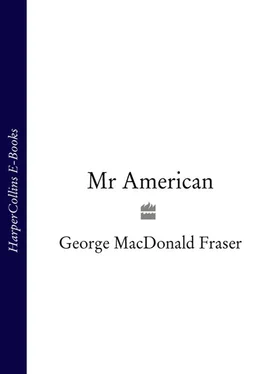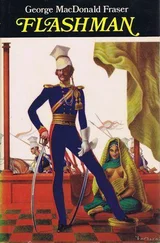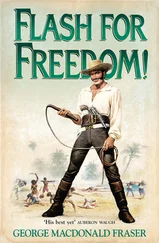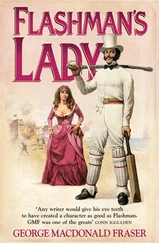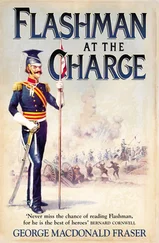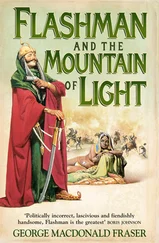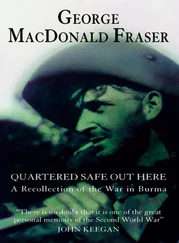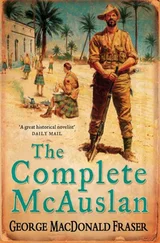“And some idiots want to give them the vote!” observed the King acidly as Soveral totted up the score after the first rubber. “Pray notice, my dear Alice, that when Mr Franklin says ‘Pass’ it does not necessarily mean that his hand is utterly void; he and the Marquis pay heed to each other’s bidding, which is the usual practice in this game.”
“I know,” said Mrs Keppel, “but I am so fearfully stupid, and when Mr Franklin fixes his cards with that baleful stare and says: ‘One heart’ as though he were going to eat it, I quite lose my wits. Never mind,” she added cheerfully, lifting her evening bag, “I shall pay for the rubber – please whisper what we owe you, Marquis, so that I am not too shamed.”
“Nonsense!” said the King, and rummaged in his pockets; he pushed sovereigns on to the table. “Can’t have our womenfolk stumping up for us,” and he even unbent so far as to wink heavily at Mr Franklin, who realized that next to winning his majesty probably enjoyed playfully brow-beating his partner – fairly playfully, at any rate. “Play a bit, do you?” went on the King. “Thought so; I don’t quite get the hang of your bidding yet, but it’s damned effective, eh, Soveral?”
“Mr Franklin has the American gift – his face tells one nothing,” said Soveral blandly; he might have added that his partner’s bidding didn’t tell him much either, but tactfully forebore. “Shall we cut for partners for the next rubber?”
“Please do,” said the King heavily and Mr Franklin prayed that he would not be drawn with his majesty; the cards gave him Mrs Keppel, and the King said: “Thank God for that” gallantly, and changed places with Mr Franklin. “Now, Soveral,” he said, lighting a fresh cigar, “let’s have no more nonsense; we want some Yankee dollars from the rubber, what?”
But he did not get them in the two rubbers that followed. Mrs Keppel, sparkling at Mr Franklin across the table, ran into a succession of those hands which bridge-players dream about; aces and kings dropped from her dainty fingers at every hand, long runs from the honours down seemed drawn to her as by a magnet, her singletons invariably coincided with Mr Franklin’s aces, and when their opponents played a hand her queens were always there over his majesty’s knaves and her kings over his queens. Twice when Mr Franklin opened in no trump she took him straight to three, and when her dummies came down – lo, there were the slams ready-made. The King growled and muttered about under-bidding, Soveral sighed and shook his head, Mr Franklin began to enjoy himself, and Mrs Keppel gleefully exclaimed: “What? Is that another rubber to us? Splendid, partner! God bless America!” and raked in her winnings, assuring the King that it was all in the run of the cards.
“Don’t be so confounded patronizing, Alice!” snapped the King. “No, Soveral – never mind cutting. We’ll stay as we are and break these Klondike sharpers yet.” He growled impatiently at the deal, picking up his cards as they were dealt, and exclaiming with disgust at each one. “Whoever saw such rubbish! What’s that, Franklin? One no-trump? Oh, lord, they’re doing it again!”
Another two rubbers went by, and Mr Franklin began to feel uncomfortable. Bad hands he had seen, in his time, but what his majesty was picking up was past belief; he seemed to have a lean note of everything from seven downward, and Mr Franklin found himself picking up his own hands with a fervent prayer that they might be bad for a change – but no, there was the usual clutch of pictures, with a couple of languid aces among them to round things off; he even resorted to the shameful expedient of passing when he knew he should have bid, to save royalty from further humiliation. But that could be dangerous, too; once he passed a powerful hand only to have to lay it down as dummy for Mrs Keppel; she shot him a quick glance over her cards, and Soveral’s silence spoke louder than words, but the King only said: “And how the deuce is one to lead into that? Go on, Soveral, let’s get it over with.”
It was well past midnight when the fifth rubber ended, and Mrs Keppel artlessly suggested a change of partners; once again, to Mr Franklin’s relief, he drew Soveral, and another two rubbers were played, both of them marathons; the cards still favoured Franklin and his partner, but he sensed that Soveral was now deliberately underplaying, skilfully and subtly, and the games ran on endlessly. But still nothing could contrive the King a rubber, and Mr Franklin noticed with interest that as the royal temper grew shorter, so its owner became quieter; he had ceased berating Mrs Keppel, which obviously troubled her, and played his cards with a grim, desperate intensity.
During one of his own dummy hands Mr Franklin took the opportunity to survey the rest of the party. Another bridge game was in progress; Smith and Lady Dalston were playing backgammon; Peggy was turning the pages of a magazine, and Sir Charles was talking to one of the other gentlemen – or rather, he was listening, with half an ear, for his attention was anxiously fixed on the royal table. Presumably he knew the King was losing; his eyes met Mr Franklin’s for a moment, and seemed to be saying: “Please, forget about those unpleasantnesses of 1776 and 1812, and do me the great favour of allowing his majesty to win now and then.” Mr Franklin would have been glad to; he was not only embarrassed but extremely tired. Did no one go to bed – not even the ladies? He was unaware that protocol demanded that no one should retire until his majesty did, and that the more experienced courtiers were perfectly prepared to be there at four in the morning.
At one point Peggy approached the table to announce that a supper was being served in the dining-room; thank God, thought Mr Franklin, at least we can stretch our legs, but to his dismay Mrs Keppel said quietly: “Do you think we might have sandwiches at the table, my dear? – it’s such an engrossing game, you see.” His majesty was at that point intent on trying to make one diamond, and going down below the nethermost pit in the process; when the sandwiches came he engulfed them steadily without a break in the play; there was a hock to go with them, but the King gruffly demanded whisky and soda. Mr Franklin stirred to ease his long legs, and received a warning glance from Mrs Keppel; the rubber finally petered out with Soveral winning a three-bid in spades which was virtually a laydown.
He’ll have to call it a day now, thought Mr Franklin; the King was looking old and tired, his cough was troubling him, and he wheezed and went purple when he exchanged his cigar for a cigarette. Mrs Keppel was prattling carelessly about the next day’s programme, in the hope of reminding his majesty that a night’s sleep might be in order, but she was far too clever to press the point. The King emerged, coughing and heaving, from the depths of his handkerchief, took a long pull at his glass, and said huskily: “Cut ’em again.” Mrs Keppel did so, and this time Mr Franklin drew the King.
And, as is the way with cards, the luck changed in that moment. Not that the hands began to run loyally to the throne, but they evened out, and they became interesting – the occasional freak deal in which three players each had only three suits, or all the strength lay in the hands of two opponents, their partners having rags. Mr Franklin had gradually got the hang of bidding during the evening, and knew enough not to disgrace himself; his play would have caused raised eyebrows in any well-conducted club, but in the slightly eccentric game in which he found himself, it served – just. He and the King squeaked home in the first rubber, to universal satisfaction, and then lost the second by the narrowest of margins; his majesty cursed the luck, but he did it jovially, and even congratulated Mr Franklin on his defence against Soveral’s two-no-trump on the last hand – this came as a gratifying surprise to Mr Franklin, who had dutifully followed suit throughout.
Читать дальше
